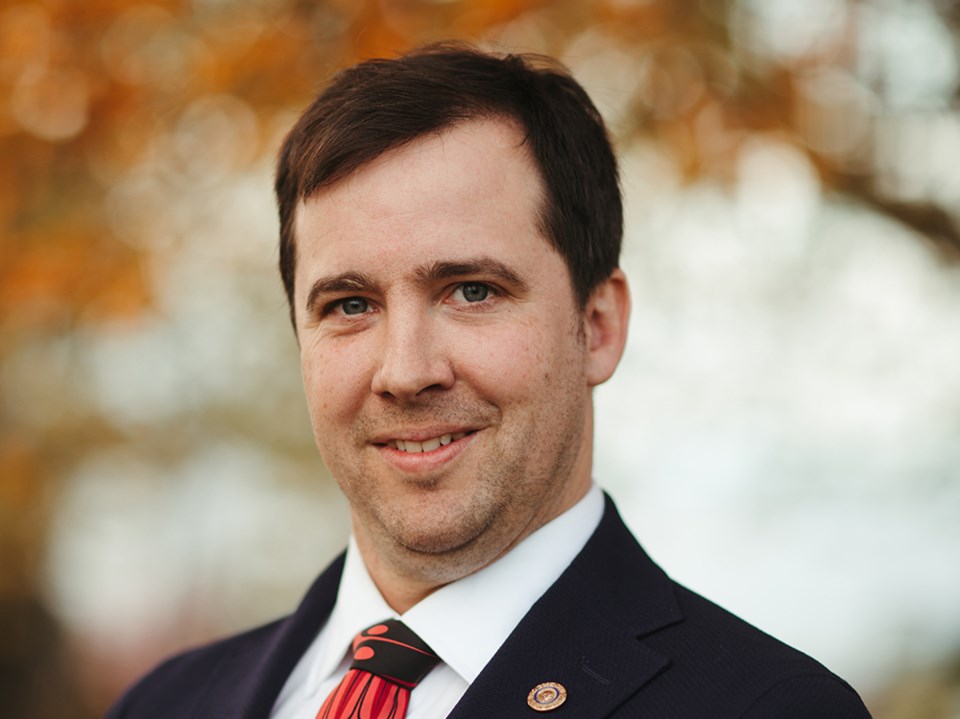qathet Regional District (qRD) directors have given first two readings for amendments to official community plans (OCP) for electoral areas A and C, but the vote for Electoral Area B failed.
Staff will be directed to hold public information meetings to present the proposed bylaw changes and seek feedback from the public for areas A and C.
According to a staff report, amending bylaws for the three electoral district OCPs would ensure a consistent policy approach across the region regarding secondary suites and accessory dwelling units, recognizing the important role these forms of housing provide in meeting current and future housing needs for one- and two-bedroom accommodation.
At the May 24 regional board meeting, directors voted for recommendations to send the proposed bylaws to amend OCP bylaws separately.
Directors supported the recommendation for Electoral Area A unanimously.
For Electoral Area B, director Mark Gisborne said the Area B OCP, for properties designated rural residential, the policy states that the rural area is one in which the natural environment takes precedence over the built environment.
“I recall in 2021 the motion was brought before the assembly regarding a development in Area B on Padgett Road,” said Gisborne. “The concern from community members and from members of the board was that they were putting in more dwellings than what was allowed in the OCP. Rural residential currently allows one dwelling for every two hectares. If you have a 10-hectare property, it’s five principal dwellings, and potentially another five with the secondary.
“The proposed amendment in the Area B OCP bylaw for rural residential would read: a residential dwelling is permitted on all lands designated rural residential. The maximum number of dwellings or service buildings per parcel is based on proof of water and sewer servicing that meets provincial standards.”
Gisborne asked if the change moves forward, how many dwellings would be allowed in rural residential? He said the way he reads it is that it is up to provincial standards.
“There’s the regional district saying as long as you meet the health care requirements, you can have as many as you want,” said Gisborne. “Is that my understanding?”
Regional district planner Julia Dykstra said Gisborne was highlighting the fact that qRD would support density approved through Vancouver Coastal Health, meeting water and sewer servicing through provincial standards.
Gisborne said the issue he had with the proposed change is that the original policy in the OCP states that a rural area is one in which the natural environment takes precedence over the built environment.
“We are now putting forward a proposal that a property owner on rural residential, or low-density residential, can have as many dwellings as they want as long as they meet the provincial health requirements,” said Gisborne.
Dykstra said staff was to be directed to hold public information meetings, gathering important feedback about servicing and the rural character in Area B. She said after the presentation of the bylaw readings, staff would be going ahead with public meetings to gather feedback and the proposed amending bylaws may be changed to reflect the feedback from the community.
The board voted in favour of the motion for Area B, with Gisborne opposed.
The board voted unanimously in favour of the recommendation for Electoral Area C.
Later in the meeting, when the bylaw amendments were discussed and voted on, for the votes on Electoral Areas A and C, first and second reading were given unanimous assent to the amendment bylaws.
Opposition expressed
When it came to vote on Electoral Area B, Gisborne again expressed his opposition. He said the electoral area sits next to City of Powell River and always has significant development pressure.
“With this proposed change, it will allow essentially as many dwellings as people want as long as it is consistent with ministry of health requirements,” said Gisborne. “If we are going to make the change to say you can have as many dwellings as you want, that makes me very nervous. I am not going to support this amendment bylaw.
“With this change, you could have a big apartment building going in next to you as long as you have the approved water and septic from the ministry of health.”
Electoral Area D director Sandy McCormick said density is coming whether people like it or not.
“We can pull up the drawbridge and say no one else is going to come here, we’ll protect our rural lifestyle forever, but that’s not going to happen,” said McCormick. “This area is going to grow, and that’s a good thing. I support the recommendation.”
When it came time to vote on first and second reading, Electoral Area C director and board chair Clay Brander, and McCormick voted for, and Electoral Area A director Jason Lennox and Gisborne voted against. The motion failed.



